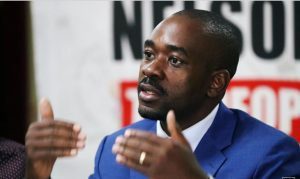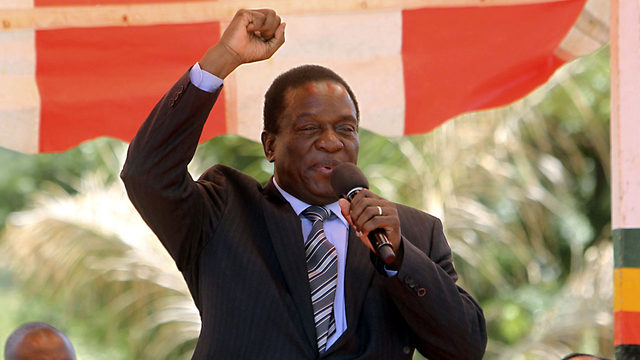 Zimbabwe’s President Emmerson Mnangagwa and his main opponent Nelson Chamisa both said on Tuesday they were confident of victory, after peaceful voting in the first election since the end of Robert Mugabe’s nearly four decade rule.
Zimbabwe’s President Emmerson Mnangagwa and his main opponent Nelson Chamisa both said on Tuesday they were confident of victory, after peaceful voting in the first election since the end of Robert Mugabe’s nearly four decade rule.
Mnangagwa, 75, a long-serving security chief who took power after Mugabe was toppled in a de facto coup in November, said he was receiving “extremely positive” information on the vote. Chamisa, 40, said his opposition Movement for Democratic Change (MDC) had done “exceedingly well”.
Western diplomats and local observer groups said the race, which saw a turnout of 75 percent, was too close to call.
Holding a peaceful vote that is accepted as fair at home and abroad is essential if Zimbabwe is to exit painful sanctions and secure the donor funding and investment needed to stem chronic cash shortages. Several elections under Mugabe saw rigging and violence as his ruling ZANU-PF party clung onto power.
The winner faces the task of putting Zimbabwe back on track after 37 years under Mugabe, tainted by corruption, mismanagement and diplomatic isolation that caused a crisis in a country that once had one of Africa’s most promising economies.
Sources among election monitors said Monday’s vote appeared to have passed without major foul play, although they noted some coercion and intimidation of voters in rural areas by ZANU-PF and said state media was biased toward the ruling party.
ZANU-PF has denied any misconduct.
Chamisa complained ahead of the vote about the independence of the Zimbabwe Electoral Commission (ZEC) and said voters were being suppressed in urban areas where he is popular.
Whatever the outcome, there is still a potential for unrest. If the MDC loses and contests the result there could be street protests with a potential for violence, and a protracted legal process that could stunt economic reforms.
Should Mnangagwa lose, many Zimbabweans fear some in the ruling party may not accept the result, particularly given the huge risk they took in removing Mugabe.
The Zimbabwe Electoral Commission will announce official results within five days of the election although the outcome should be known well before then.
“The information from our representatives on the ground is extremely positive!” Mnangagwa said on his official Twitter feed.
Chamisa had earlier said he was poised for victory, writing on Twitter: “Awaiting ZEC to perform their constitutional duty to officially announce the people’s election results and we are ready to form the next government.”
Mnangagwa was viewed as the front runner, although the latest opinion polls showed a tight race. There will be a runoff on Sept. 8 if no candidate wins more than half the votes.
A Chamisa victory is unlikely to sit well with generals who plotted Mugabe’s ouster last November, and there could be a pushback. Some of the military organizers of the coup are now in government, including Vice President Constantino Chiwenga.





I really dont understand ohttps://bit.ly/2Auos8j